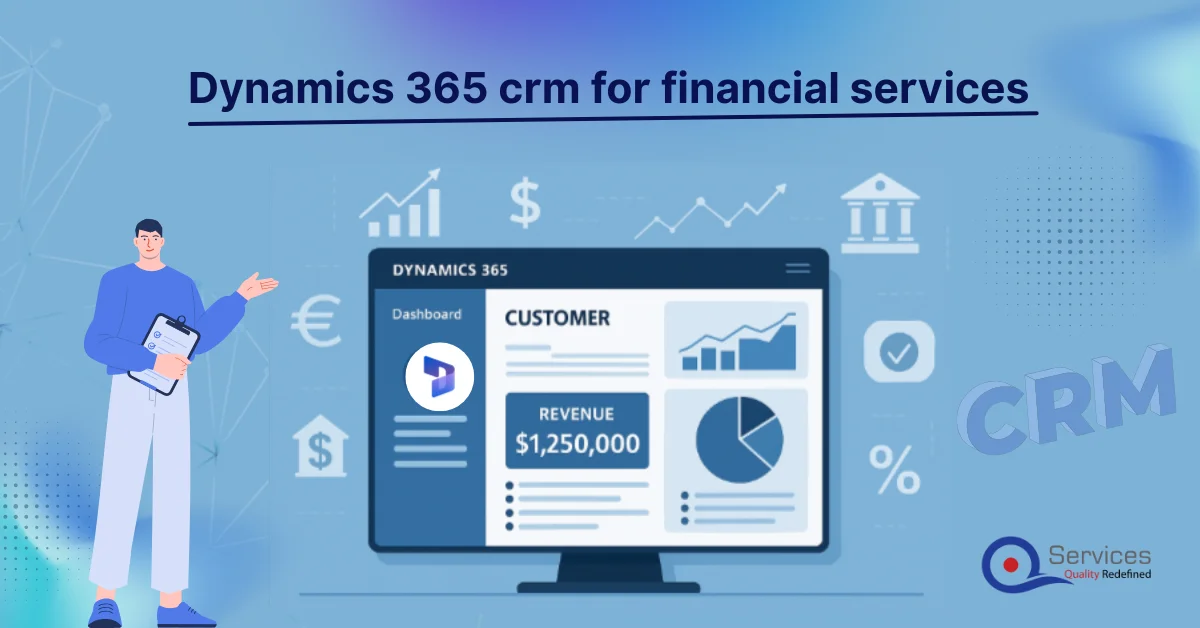
Rewards
.





CANADA
55 Village Center Place, Suite 307 Bldg 4287,
Mississauga ON L4Z 1V9, Canada
Certified Members:
.



Home » Understanding Microsoft 365 Licensing A Comprehensive Guide

Are you starting with Microsoft 365 but not sure because of various licensing options? Microsoft 365 brings top-notch tools and services to businesses of any size. But let’s face it—its licensing options can be confusing at first glance.
This guide, Understanding Microsoft 365 Licensing: A Comprehensive Guide, breaks it all down. From the Microsoft Licensing Service Center home to side-by-side comparisons and expert tips, we’ll help you choose the best plan to fit your needs confidently.
Simply put, Microsoft 365 licensing is how you get access to all the Microsoft tools you need, like Word, Excel, PowerPoint, and Teams. Think of it like buying a ticket to use Microsoft’s software and services, and the license helps keep everything legal and running smoothly.
Before Microsoft 365, there was Office 365 licenses—a cloud-based service that gave you the Office apps. But over time, Microsoft expanded this to include everything from Windows OS to cloud storage, security tools, and more, turning it into the all-in-one platform known as Microsoft 365.
If you’re looking for a Windows software licence, it’s all part of the bigger picture. And understanding software licensing services helps you make sure you’re getting the most from your Microsoft license while staying compliant.
For small businesses, selecting the right Microsoft license is important for balancing cost with functionality, as it offers a range of plans tailored specifically for small business needs, including Business Basic, Business Standard, and Business Premium.
This plan is a great choice for businesses that rely on remote work. With access to Microsoft Teams for team communication and OneDrive for file storage, Business Basic ensures teams stay connected and productive without the need for heavy infrastructure.
The Business Standard plan provides the full desktop versions of Office apps like Word, Excel, and PowerPoint, and includes email hosting via Microsoft Exchange. It’s perfect for businesses that need professional-grade Office tools, along with collaboration features like SharePoint.
Designed for businesses that handle sensitive data and need robust security. It includes all the features of Business Standard, along with advanced security measures like threat protection, device management, and additional compliance tools.
With these Microsoft 365 licensing plans, small businesses can scale their solutions to match their growth while ensuring that they’re secure and productive.
Choosing the right Microsoft 365 plan is a significant decision that can help your organization to streamline its operations. With multiple options to choose from, it’s easy to feel uncertain. However, by focusing on some key factors, you can quickly determine the best plan for your needs.
What are you looking for in a plan? Start by evaluating your team’s needs:
Your team size plays a significant role in which plan is best for you:
Selecting a plan within your budget is key. Luckily, there are several price points:
If your organization deals with sensitive data, security should be a priority:
While Microsoft 365 and Office 365 share similarities, they cater to different needs.
If you’re trying to decide between Microsoft 365 and Office 365, it’s helpful to consider the level of service your business needs. While both plans provide access to the essential tools such as Word, Excel, PowerPoint, and Teams, they serve different purposes.
Microsoft 365 is an all-in-one suite that includes everything from the Office apps to Windows OS and enterprise-grade security features. This makes it the perfect choice for organizations that require a more comprehensive set of services. It’s also a great option for businesses that need scalability, IT management, and advanced security for their sensitive data.
In contrast, Office 365 focuses primarily on providing the essential tools that most businesses use daily—Word, Excel, PowerPoint, and Teams. It offers these core applications along with cloud storage and collaboration tools but lacks the additional security and operating system components found in Microsoft 365. If your organization’s needs are centered around document creation and collaboration, and you don’t require extra security or IT management, then Office 365 might be a more budget-friendly solution.
Ultimately, whether you choose Microsoft 365 or Office 365 depends on your business. If you need everything in one place – from collaboration to security and IT tools – Microsoft 365 is the way to go. But if you’re just after the essentials for productivity, Office 365 will do the job at a lower cost.
Get free Consultation and let us know your project idea to turn into an amazing digital product.
The first and most significant step is to visit the Microsoft Licensing Service Center where you’ll find all the Microsoft 365 plans you can choose from. Whether you’re looking for basic functionality or full-featured enterprise tools, it’s all here.
Think about what your business really requires. If you just need the essentials, plans like Microsoft 365 Business Basic might be enough. If you need more advanced security or collaboration tools, Microsoft 365 Business Premium or an Enterprise plan might be a better fit. The Service Center provides all the details to help you make the right choice.
Once you know which plan you want, select the number of licenses your company needs and proceed to checkout. The entire process is quick and secure, so you can be up and running in no time.
After purchasing, go to the Admin Center to activate your licenses. From there, you can assign them to users in your business and get started with all the Microsoft 365 tools that will help your team stay productive.
Microsoft 365 licensing is evolving itself in 2025, with some significant updates to meet modern business needs.
Hybrid Work Focus: Microsoft is enhancing its support for businesses that have a mix of remote and in-office employees. Tools like Microsoft Teams and OneDrive will continue to improve, making collaboration and communication easier across different work environments.
Enhanced Security Options: Microsoft is rolling out more security features to protect businesses from growing cyber threats. New add-ons for data protection, compliance tools, and threat detection will make it easier for organizations to manage sensitive data securely.
Updated Pricing for Education and Non-Profits: To the increasing demand for affordable access to enterprise tools, Microsoft is offering updated pricing for education and non-profit organizations. The new pricing gives these organizations discounted rates and extra resources, so they can keep their teams productive while staying within budget.
To stay updated with these changes, refer to a M365 licensing guide that explains all the new features, pricing options, and how they can impact your organization.
M365 Business Premium is a powerful solution especially designed for meeting the demands of large organizations. With its advanced features and comprehensive tools, it’s an ideal choice for enterprises. Here’s why:
Security is one of the biggest priorities for any enterprise, and Microsoft 365 Business Premium has you covered. It offers built-in features that safeguard your data against cyber threats, like phishing attacks and ransomware. It also includes tools like Microsoft Defender, which continuously monitors and defends your organization from potential vulnerabilities and breaches.
With the rise of remote or hybrid work and mobile devices, managing and securing company devices is critical. Microsoft 365 Business Premium includes advanced device management features through Microsoft Intune. This allows you to secure and manage all your devices from a single dashboard, ensuring that your employees can access company resources securely, no matter where they are.
Microsoft 365 Business Premium offers everything enterprises need, from Teams to SharePoint and Outlook, ensuring effective communication across all locations.
For enterprises focused on security, productivity, and collaboration, Microsoft 365 Business Premium offers a scalable, integrated solution that meets all needs.
Microsoft 365 provides businesses the option to add extra features to their subscription. These extra features, called add-ons which are a great way to customize your plan. Some of the popular ones include:
By exploring these add-ons and their pricing, you can choose the ones that will help your business be more productive, secure, and organized, without paying for things you don’t need.
The key to boosting the efficiency of your team is selecting the right Microsoft 365 license. Here’s how to make that happen:
Select the Right Plan for Your Business:
For large enterprises, M365 Business Premium is the perfect choice as it includes advanced security, robust collaboration tools, and device management. Smaller businesses might find Business Standard or Business Basic a great fit, offering core productivity tools at an affordable price.
Use the Microsoft Licensing Service Center
Managing licenses is easy with the Microsoft Licensing Service Center. It helps you keep track of licenses, assign them efficiently, and get insights into usage, making license management a breeze.
Add-Ons for More Power
Boost your plan with add-ons like Power BI for data analytics, Microsoft Defender for security, or Azure AD for identity management. These extras help tailor your subscription to your exact needs.
Streamline Collaboration
With tools like Microsoft Teams, OneDrive, and SharePoint, can help your team to collaborate in real-time, share files seamlessly, and communicate from anywhere—ensuring a connected and productive workforce.
Prioritize Security
Security is built into Microsoft 365, especially with higher-tier plans like Business Premium. Features like Multi-Factor Authentication (MFA) and threat protection help safeguard your data so your team can focus on their work without worry.

Choosing the right Microsoft 365 license is all about understanding your organization needs and exploring the available options. The Microsoft Licensing Service Center offers great insights, especially for small businesses. Keeping up with changes ensures your team stays ahead.
This guide walks you through the process so your organization gets the best out of Microsoft 365.

Pipeline failures can be expensive and harmful to the environment. Companies are using IoT applications in the oil and gas industry to prevent these breakdowns and stay ahead of problems.
![Azure IoT vs AWS IoT vs Google IoT Pricing: Feature Comparison Chart for Enterprise [2025]](https://www.qservicesit.com/wp-content/uploads/2025/03/Microsoft-Teams-vs-Slack-vs-Zoom-TCO-Analysis-for-Enterprise-Organizations-2.webp)
The Internet of Things (IoT) helps businesses run better by connecting devices, collecting information, and improving choices. But picking the best IoT cloud provider can be confusing. The main three are AWS IoT vs Azure IoT vs Google IoT.

In this blog, we’ll explore how these advances are shaping the future of field services and how companies are adapting to stay ahead in a competitive market. What are the key changes that businesses need to embrace to stay relevant and efficient?
The cost varies depending on the plan:
Yes, switching between plans is possible to accommodate your business’s changing needs. This can be done via the Microsoft 365 admin center, ensuring a smooth transition without losing data or access.
When you assign a license, the user gains immediate access to all the applications and services included in the plan, such as email, cloud storage, and collaboration tools.
No, licenses are not required for shared mailboxes as long as their storage does not exceed 50 GB. Larger mailboxes require a separate license.
Licenses can be assigned through the Microsoft 365 admin center:
Log in to the admin portal.
Navigate to the Users section.
Select a user and assign the desired license.
Yes, Microsoft 365 applications such as Word and Excel can be used offline. However, you’ll need to connect to the internet periodically to verify the subscription and access cloud-based features.
The admin center is a web-based portal where administrators can:
Microsoft 365 Business Premium provides:
Subscriptions can be canceled through the admin center:
Go to Billing > Subscriptions.
Select the subscription and choose Cancel.
Note: You may need to meet certain cancellation criteria, such as notice periods
Yes, Microsoft 365 supports integration with third-party tools such as Zoom, Salesforce, and Trello for enhanced productivity.
.





55 Village Center Place, Suite 307 Bldg 4287,
Mississauga ON L4Z 1V9, Canada
.




Founder and CEO

Chief Sales Officer

🎉 Thank you for your feedback! We appreciate it. 🙌